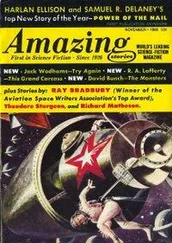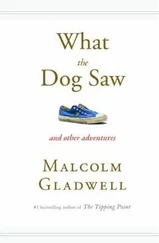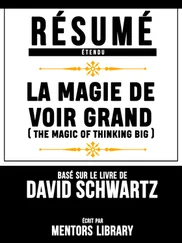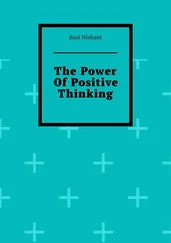Malcolm Gladwell - Blink - The Power of Thinking Without Thinking
Здесь есть возможность читать онлайн «Malcolm Gladwell - Blink - The Power of Thinking Without Thinking» весь текст электронной книги совершенно бесплатно (целиком полную версию без сокращений). В некоторых случаях можно слушать аудио, скачать через торрент в формате fb2 и присутствует краткое содержание. Жанр: Культурология, Психология, на английском языке. Описание произведения, (предисловие) а так же отзывы посетителей доступны на портале библиотеки ЛибКат.
- Название:Blink: The Power of Thinking Without Thinking
- Автор:
- Жанр:
- Год:неизвестен
- ISBN:нет данных
- Рейтинг книги:3 / 5. Голосов: 1
-
Избранное:Добавить в избранное
- Отзывы:
-
Ваша оценка:
- 60
- 1
- 2
- 3
- 4
- 5
Blink: The Power of Thinking Without Thinking: краткое содержание, описание и аннотация
Предлагаем к чтению аннотацию, описание, краткое содержание или предисловие (зависит от того, что написал сам автор книги «Blink: The Power of Thinking Without Thinking»). Если вы не нашли необходимую информацию о книге — напишите в комментариях, мы постараемся отыскать её.
Blink: The Power of Thinking Without Thinking — читать онлайн бесплатно полную книгу (весь текст) целиком
Ниже представлен текст книги, разбитый по страницам. Система сохранения места последней прочитанной страницы, позволяет с удобством читать онлайн бесплатно книгу «Blink: The Power of Thinking Without Thinking», без необходимости каждый раз заново искать на чём Вы остановились. Поставьте закладку, и сможете в любой момент перейти на страницу, на которой закончили чтение.
Интервал:
Закладка:
Damasio and his team also gave the gambler’s test to their ventromedial patients. Most of the patients, just like the rest of us, eventually figured out that the red decks were a problem. But at no time did the ventromedial patients ever get a prickling of sweat on their palms; at no time did they get a hunch that the blue decks were preferable to the red cards, and at no time—not even after they had figured the game out—did the patients adjust their strategy to stay away from the problem cards. They knew intellectually what was right, but that knowledge wasn’t enough to change the way they played the game. “It’s like drug addiction,” says Antoine Bechara, one of the researchers on the Iowa team. “Addicts can articulate very well the consequences of their behavior. But they fail to act accordingly. That’s because of a brain problem. That’s what we were putting our finger on. Damage in the ventromedial area causes a disconnect between what you know and what you do.” What the patients lacked was the valet silently pushing them in the right direction, adding that little emotional extra—the prickling of the palms—to make sure they did the right thing. In high-stakes, fast-moving situations, we don’t want to be as dispassionate and purely rational as the Iowa ventromedial patients. We don’t want to stand there endlessly talking through our options. Sometimes we’re better off if the mind behind the locked door makes our decisions for us.
On a brisk spring evening not long ago, two dozen men and women gathered in the back room of a Manhattan bar to engage in a peculiar ritual known as speed-dating. They were all young professionals in their twenties, a smattering of Wall Street types and medical students and schoolteachers, as well as four women who came in a group from the nearby headquarters of Anne Klein Jewelry. The women were all in red or black sweaters, and jeans or dark-colored pants. The men, with one or two exceptions, were all wearing the Manhattan work uniform of a dark blue shirt and black slacks. At the beginning they mingled awkwardly, clutching their drinks, and then the coordinator of the evening, a tall, striking woman named Kailynn, called the group to order.
Each man would have, she said, six minutes of conversation with each woman. The women would sit for the duration of the evening against the wall on the long, low couches that ringed the room, and the men would rotate from woman to woman, moving to the next woman whenever Kailynn rang a bell, signaling that the six minutes were over. The daters were all given a badge, a number, and a short form to complete, with the instruction that if they liked someone after six minutes, they should check the box next to his or her number. If the person whose box they checked also checked their box, both daters would be notified of the other’s e-mail address within twenty-four hours. There was a murmur of anticipation. Several people made a last-minute dash to the bathroom. Kailynn rang her bell.
The men and women took their places, and immediately a surge of conversation filled the room. The men’s chairs were far enough away from the women’s couches that the two parties had to lean forward, their elbows on their knees. One or two of the women were actually bouncing up and down on the sofa cushions. The man talking to the woman at table number three spilled his beer on her lap. At table one, a brunette named Melissa, desperate to get her date to talk, asked him in quick succession, “If you had three wishes, what would they be? Do you have siblings? Do you live alone?” At another table, a very young and blond man named David asked his date why she signed up for the evening. “I’m twenty-six,” she replied. “A lot of my friends have boyfriends that they have known since high school, and they are engaged or already married, and I’m still single and I’m like— ahhhh .”
Kailynn stood to the side, by the bar that ran across one wall of the room. “If you are enjoying the connection, time goes quickly. If you aren’t, it’s the longest six minutes of your life,” she said as she watched the couples nervously chatter. “Sometimes strange things happen. I’ll never forget, back in November, there was a guy from Queens who showed up with a dozen red roses, and he gave one to every girl he spoke to. He had a suit on.” She gave a half smile. “He was ready to go .”
Speed-dating has become enormously popular around the world over the last few years, and it’s not hard to understand why. It’s the distillation of dating to a simple snap judgment. Everyone who sat down at one of those tables was trying to answer a very simple question: Do I want to see this person again? And to answer that, we don’t need an entire evening. We really need only a few minutes. Velma, for instance, one of the four Anne Klein women, said that she picked none of the men and that she made up her mind about each of them right away. “They lost me at hello,” she said, rolling her eyes. Ron, who worked as a financial analyst at an investment bank, picked two of the women, one of whom he settled on after about a minute and a half of conversation and one of whom, Lillian at table two, he decided on the instant he sat down across from her. “Her tongue was pierced,” he said, admiringly. “You come to a place like this and you expect a bunch of lawyers. But she was a whole different story.” Lillian liked Ron, too. “You know why?” she asked. “He’s from Louisiana. I loved the accent. And I dropped my pen, just to see what he would do, and he picked it up right away.” As it turned out, lots of the women there liked Ron the instant they met him, and lots of the men liked Lillian the instant they met her. Both of them had a kind of contagious, winning spark. “You know, girls are really smart,” Jon, a medical student in a blue suit, said at the end of the evening. “They know in the first minute, Do I like this guy, can I take him home to my parents, or is he just a wham-bam kind of jerk?” Jon is quite right, except it isn’t just girls who are smart. When it comes to thin-slicing potential dates, pretty much everyone is smart.
But suppose I were to alter the rules of speed-dating just slightly. What if I tried to look behind the locked door and made everyone explain their choices? We know, of course, that that can’t be done: the machinery of our unconscious thinking is forever hidden. But what if I threw caution to the winds and forced people to explain their first impressions and snap judgments anyway ? That is what two professors from Columbia University, Sheena Iyengar and Raymond Fisman, have done, and they have discovered that if you make people explain themselves, something very strange and troubling happens. What once seemed like the most transparent and pure of thin-slicing exercises turns into something quite confusing.
Iyengar and Fisman make something of an odd couple: Iyengar is of Indian descent. Fisman is Jewish. Iyengar is a psychologist. Fisman is an economist. The only reason they got involved in speed-dating is that they once had an argument at a party about the relative merits of arranged marriages and love marriages. “We’ve supposedly spawned one long-term romance,” Fisman told me. He is a slender man who looks like a teenager, and he has a wry sense of humor. “It makes me proud. Apparently all you need is three to get into Jewish heaven, so I’m well on my way.” The two professors run their speed-dating nights at the back of the West End Bar on Broadway, across the street from the Columbia campus. They are identical to standard New York speed-dating evenings, with one exception. Their participants don’t just date and then check the yes or no box. On four occasions—before the speed-dating starts, after the evening ends, a month later, and then six months after the speed-dating evening—they have to fill out a short questionnaire that asks them to rate what they are looking for in a potential partner on a scale of 1 to 10. The categories are attractiveness, shared interests, funny/ sense of humor, sincerity, intelligence, and ambition. In addition, at the end of every “date,” they rate the person they’ve just met, based on the same categories. By the end of one of their evenings, then, Fisman and Iyengar have an incredibly detailed picture of exactly what everyone says they were feeling during the dating process. And it’s when you look at that picture that the strangeness starts.
Читать дальшеИнтервал:
Закладка:
Похожие книги на «Blink: The Power of Thinking Without Thinking»
Представляем Вашему вниманию похожие книги на «Blink: The Power of Thinking Without Thinking» списком для выбора. Мы отобрали схожую по названию и смыслу литературу в надежде предоставить читателям больше вариантов отыскать новые, интересные, ещё непрочитанные произведения.
Обсуждение, отзывы о книге «Blink: The Power of Thinking Without Thinking» и просто собственные мнения читателей. Оставьте ваши комментарии, напишите, что Вы думаете о произведении, его смысле или главных героях. Укажите что конкретно понравилось, а что нет, и почему Вы так считаете.












